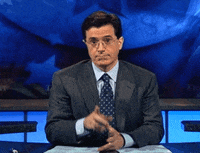Does anyone remember fax machines?
This week’s “Crossroads” podcast (click here to tune that in) focused on a sad, but very old reality in mainstream news coverage — the lack of mainstream news coverage of the massacres that take place year after year in Nigeria at Christmas.
To put this trend in context, I backed up to an “On Religion” column that I wrote in 1996 that opened like this, focusing on a tragedy that was unfolding in Sudan:
It's possible to buy a Christian slave in southern Sudan for as little as $15.
Last year's going rate for parents who want to buy back their own kidnapped child was five head of cattle – about $400. A boy might cost 10 head. An exiled leader in Sudan's Catholic Bishops Conference reports that 30,000 children have been sold into slavery in the Nuba mountains. In six years, more than 1.3 million Christian and other non-Muslim people have been killed in Sudan – more than Bosnia, Chechnya and Haiti combined.
A Jewish activist, Michael J. Horowitz of the Hudson Center, faxed my column to the legendary A. M. Rosenthal, the retired editor of the New York Times and a former foreign correspondent who won a Pulitzer Prize for reporting. This led to many “On My Mind” columns at the Times, including one in which Rosenthal noted that Horowitz “screamed me awake” on the undercovered reality that is religious persecution.
That fax contact led to some conversations — via email and telephone — in which Rosenthal and I talked about the journalism realities behind a global story that was shamefully undercovered then and that remains the case to this day.
When Rosenthal died in 2006, I wrote a column (“Rosenthal refused to remain silent”) that noted:
Some human-rights activists are convinced that one of the reasons he lost his column and was forced to leave the Times was because he wouldn't stop writing about the persecution of religious minorities around the world.
Rosenthal couldn't understand why so many journalists just didn't "get" that story.










